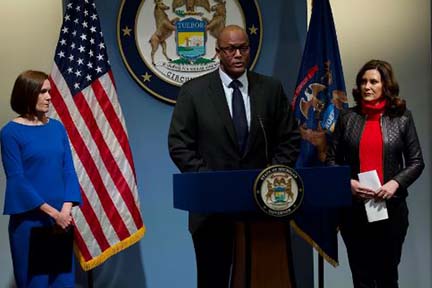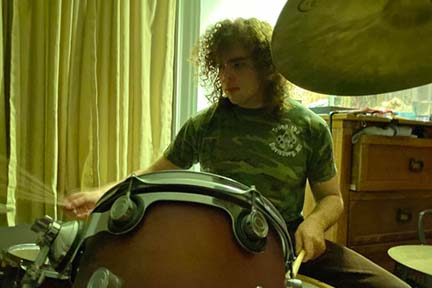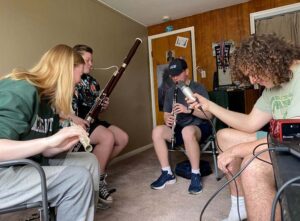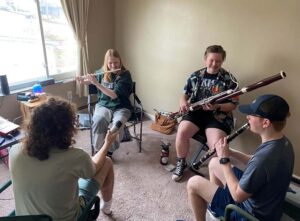
Lt. Governor Gilchrist Announces Funding for Four Michigan Start-Ups in High-Tech Mobility Industry
Grants will support companies revitalizing existing mobility solutions to address modern challenges
LANSING, Mich. – Today, Lt. Governor Garlin Gilchrist II announced that four companies will receive $520,000 in total funding through the Michigan Mobility Funding Platform (MMFP) for the real-world testing and deployment of mobility projects across the state. With these grants, Michigan will enable new mobility solutions that will help to upgrade existing infrastructure and capabilities to accommodate a new era of mobility and electrification, including battery-electric freight railcars, solar lighting for the enhanced safety of pathways, sensors to detect driver and passenger health emergencies, and modular, flexible electric vehicle (EV) charging platforms.
“Michigan is setting the pace for innovating the future of mobility, chips, and clean energy,” said Lt. Governor Garlin Gilchrist II. “Today’s investments will showcase how our infrastructure meets the demands of new technologies while prioritizing the needs of our communities and residents. Governor Whitmer and I will continue to invest in Michigan’s future in ways that solidify Michigan as an example for the rest of the world to follow.”
In partnership with key startups, local, state and federal officials, four companies – Intramotev, APT Solar Solutions, Meili Technologies, and PlugZen – will receive funding to address mobility challenges across the state.
- Intramotev will conduct the first real-world operational deployment of battery-electric freight railcars capable of operating without a locomotive for short-haul freight moves, helping to foster a cleaner, less congested and safer freight ecosystem.
- APT Solar Solutions will improve the reliability of solar lighting by integrating 3D Solar Lighting Fixtures into existing transportation and urban infrastructures for enhanced mobility safety, sustainability and equity.
- Meili Technologies will conduct a pilot with deep learning software that uses in-cabin sensors to detect driver and passenger health emergencies based on body poses, facial expressions and vital signs, helping to enable mobility for those who are susceptible to medical emergencies while driving.
- PlugZen will install modular, flexible EV charging platforms and adapt them for more convenient environments such as multi-family housing units, offices and workspaces, and directly to fleet operations providers.
“We are pleased to support this latest round of grant recipients because they will play key roles in Michigan’s comprehensive approach to mobility solutions development beyond the individual automobile,” said Kathryn Snorrason, Interim Chief Mobility Officer at the State of Michigan. “MMFP recipients continue to play a key role in deploying the next generation of safe, efficient and sustainable mobility technologies that address the unique needs of Michigan’s diverse populations.”
Today’s announcement represents the latest in a series of grants awarded through the MMFP. With this latest round of grants, a total of $3,900,343 has been deployed at real world and test mobility sites throughout the state. This round of MMFP grant recipients include:
Walkability is a core urban design element, and cities across the state are striving to modernize non-motorized routes to help provide alternative modes of transportation while promoting health and wellness. In Southfield, which has more than 20 miles of constructed pathways, there is an opportunity for citizens to rely less on vehicle transportation, participate in recreational activities and benefit from the sustainability of the City’s mobility infrastructure.
Adaptable Powerful Transformative Solar Solutions (APTSS TM), an Ann Arbor company, has developed a proprietary, market-ready, off-grid, clean electricity platform in the form of a compact 3D solar module that significantly improves the reliability and performance of solar products. The APTSS TM 3D Solar Lighting Fixtures can be easily integrated into existing transportation and urban infrastructures, and require minimal maintenance once installed. The solution offers a more affordable and immediate alternative to building out grid-connected lighting.
Using MMFP assistance, APTSS TM will deploy 100 of its 3D Solar Lighting Fixtures across Michigan’s Lower and Upper-Peninsulas. The pilot project will measure how the solution improves safety, equity and economic opportunity by decreasing nighttime safety incidents and increasing access for mobility-impaired individuals. APTSS TM also aims to contribute to the creation or retention of clean manufacturing jobs in Michigan as it expands to commercialization in 2023. This pilot program will be pivotal to the company’s ability to finalize design and demonstrate the product’s competitive advantage, aligned with their vision of a cleaner, and more versatile solar grid, termed Solar Forest TM.
As part of the pilot program, APTSS TM will partner with organizations in both the private and public sectors, including university campuses, municipalities, marina authorities, and non-profit transportation organizations, to deploy the fixtures that will help provide on-demand lighting on walkways, trails, bike lanes, boat docks, driveways, traffic signages and bus stations.
“This technology compliments the City’s placemaking strategies along current and future non-motorized pathways by enhancing safety measures and promoting sustainability,” said Terry Croad, director of planning for the City of Southfield. “Ultimately, the solar lighting fixtures will make it possible to construct additional pathway segments in locations that are thought to be a deterrent to pedestrians, such as under freeway overpasses, heavily wooded parks, or other routes with limited illumination.”
“This exciting project in Ypsilanti continues Michigan’s leadership in clean energy and money-saving energy efficiency solutions,” said Senator Jeff Irwin (D–Ann Arbor)
“Investing in clean energy, like solar, is a huge priority for myself and my constituents,” said State Rep. Felicia Brabec (D-Pittsfield Township). “Based in Ann Arbor, APT Solar Solutions is incredibly deserving of an MMFP grant, and I look forward to seeing the impacts of this pilot project on our local community and the implication statewide.”
Intramotev builds TugVolt battery-electric freight railcars that can move independently without relying on a locomotive. By replacing traditional semi-trucks and diesel locomotives with new, electric freight railcars for short-haul freight moves, Michigan can enjoy even cleaner air and reduced congestion while reducing work hazards and relying on clean energy.
With support from the MMFP, Intramotev will deploy three TugVolt battery electric railcars at a mining site in the Upper Peninsula, to support a new railway that will carry one six-car train of ore per hour. It will be the first real-world operational deployment of a battery-electric freight railcar capable of operating without a locomotive pulling it. It will also be one of the largest scale implementations of industrial robots.
Rather than implement an additional full locomotive to transport the six-car train, Intramotev will retrofit three existing railcars into self-propelled, battery-electric TugVolts that will pull three additional traditional railcars. This change is estimated to eliminate up to 55,000 gallons of diesel consumption and 617 tons of vehicle-level CO2 emissions. The deployment will also save the mining partner a significant amount of operating expenses and help keep their workers safe.
This project will help Intramotev prove its solution on a small-scale, allowing the company to improve and implement its technology throughout the state and beyond. Not only is there expansion potential to help further modernize the partner’s other sites, there are additional opportunities for deployments throughout Michigan at mines, ports, transloads and manufacturing facilities that are rail-connected.
“Through this project, Michigan is setting the stage to revolutionize transportation again through the first implementations of battery electric self-propelled railcars,” said Timothy Luchini, Chief Executive Officer of Intramotev. “When scaled more broadly, our technology will help foster a cleaner, less congested and safer world – and it will have been deployed first in Michigan.”
Meili Technologies (Meili) offers deep learning software that uses in-cabin sensors to detect driver and passenger health emergencies based on body pose, facial expressions and vital signs. Meili’s software integrates into fleet and passenger vehicle sensors and helps to enable mobility for those who are susceptible to medical emergencies while driving, making roadways safer for all. If a health event, like a heart attack or seizure occurs, the software communicates signals to the vehicle to take action – which could mean emergency braking, flashing taillights, or changing vehicle door access – to proactively avoid a crash, and contacts first responders to ensure lifesaving care arrives as quickly as possible.
With funding from the MMFP, Meili will conduct a pilot project with Stellantis subsidiary, FCA US. Over the course of the project, Meili will work toward continued integration within a Stellantis vehicle. The project will demonstrate how lifesaving software like Meili’s can integrate into in-cabin settings and sync with vehicle advanced driver-assistance systems (ADAS). The project also aims to show how Meili’s technology will help alleviate existing mobility barriers – a necessary step to further OEM development and integration of Meili’s technology.
“At Meili, our mission is to build a world-class solution that enhances mobility and freedom for the one in three drivers who suffer from a pre-existing condition, as well as make transportation safer for all stakeholders,” said John DeFelice, COO of Meili Technologies.
Dating back to the old-fashioned, full-service gas stations of days past, drivers have depended on limited, stationary options to refuel their vehicles for over a century. As more OEMs prioritize the development of EVs, similar challenges have arisen regarding the accessibility of EV chargers, with electric “range anxiety” replacing the uneasy feeling of the gas light turning on. This is especially true in underserved communities where EV infrastructure investments have been slow to emerge.
PlugZen, a Detroit-based EV manufacturer, is developing a modular, flexible EV Charging Platform that will evolve charging options beyond the traditional “fill up” and adapt them for more convenient environments such as multi-family housing units, offices and workspaces, and directly to fleet operations providers. Plug Zen’s charging platform will be able to charge up to 10 vehicles simultaneously through either cable or inductive charging.
PlugZen will leverage its MMFP grant to create opportunities for workforce development and generational wealth in the Metro Detroit communities it serves, reduce its carbon footprint and deliver environmental justice to communities, all while improving access to EV charging options.
“The inclusion of all voices elevates business, drives sustainable policies, and creates equitable opportunities for all,” said Kwabena “Q” Johnson, president at PlugZen. “With the support of MEDC, PlugZen is committed to making sure Metro Detroit communities have access to affordable EV charging and a stake in the future of the EV infrastructure they depend on.”
“The future of mobility is built in Detroit” said Senator Erika Geiss (D-Taylor). “This funding opportunity will advance PlugZen’s technology as they grow their footprint in the communities I represent, right in the heart of the Motor City. This company is facing the challenges of the 21st century economy head-on, and as the Chair of the Senate Transportation & Infrastructure Committee, I am excited to see how their work will advance opportunities for electric vehicle ownership. Michigan put the world on wheels in the 20th century, and the next century of electric vehicles is driven by Detroit.”
|
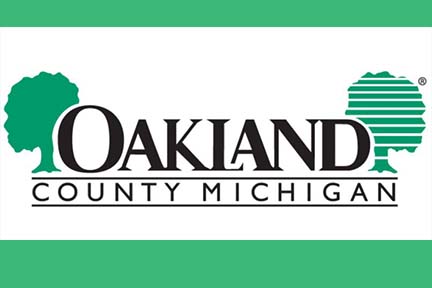

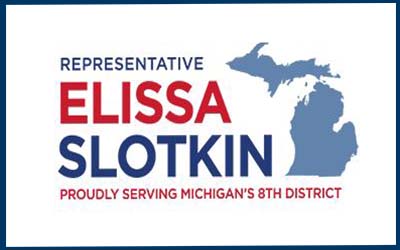
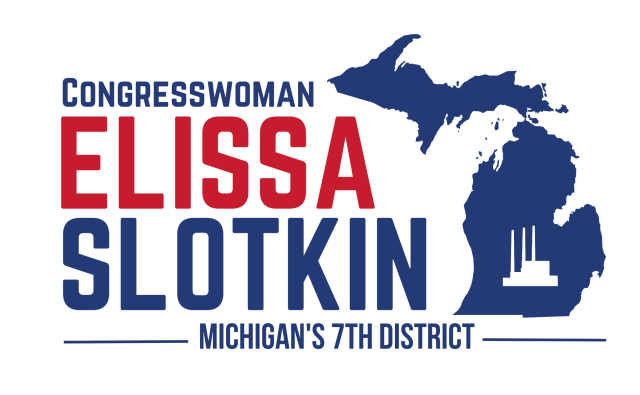
 8 of the 9 students who will attend service academies in the fall.
8 of the 9 students who will attend service academies in the fall.

